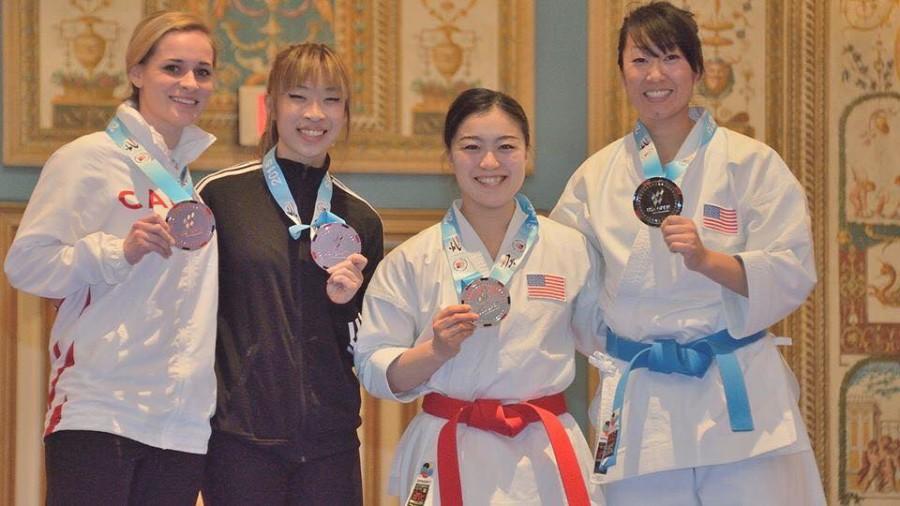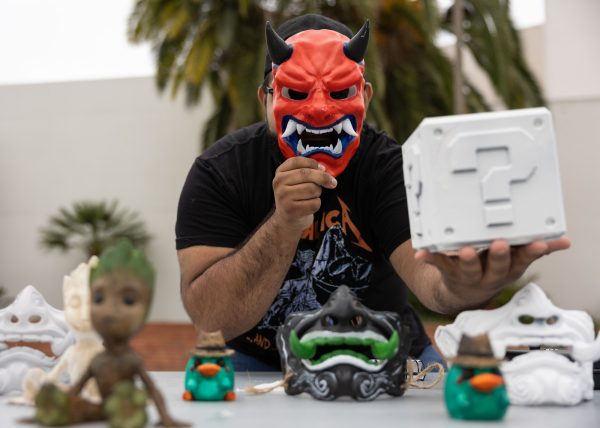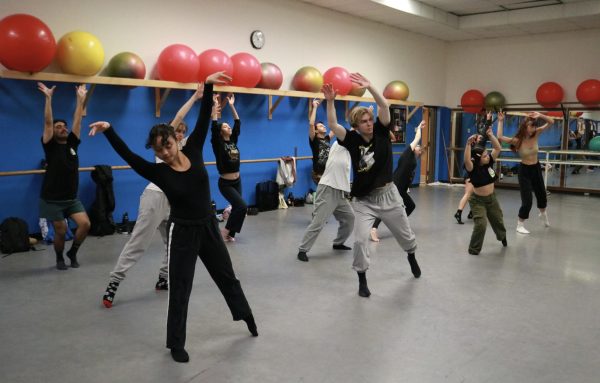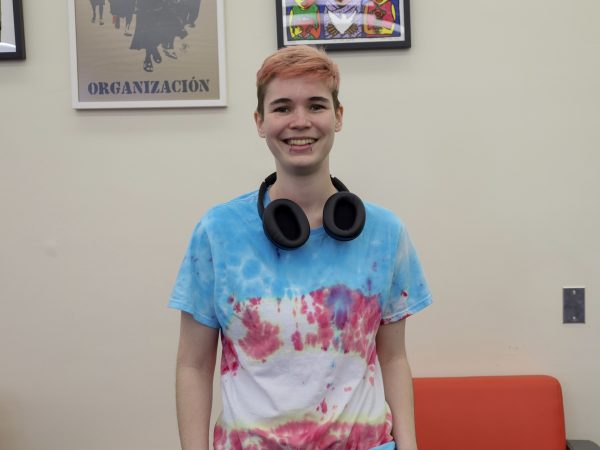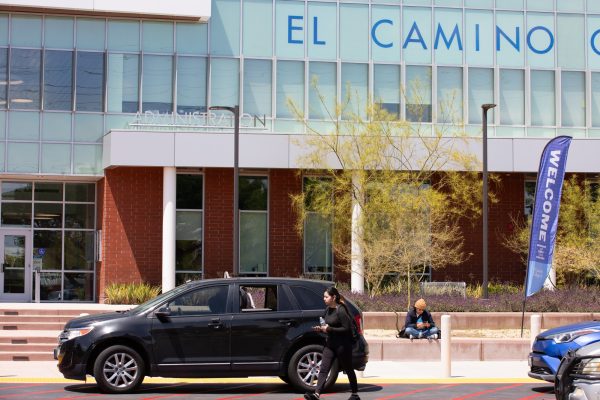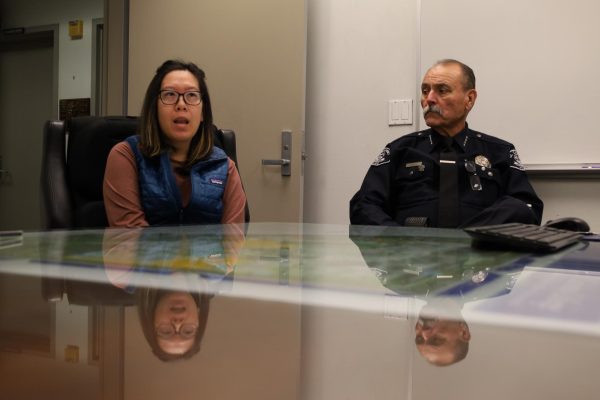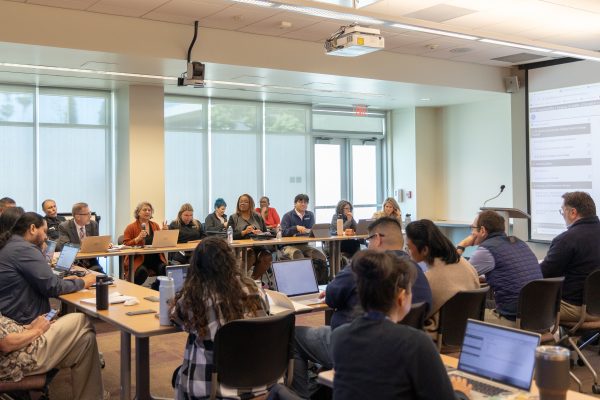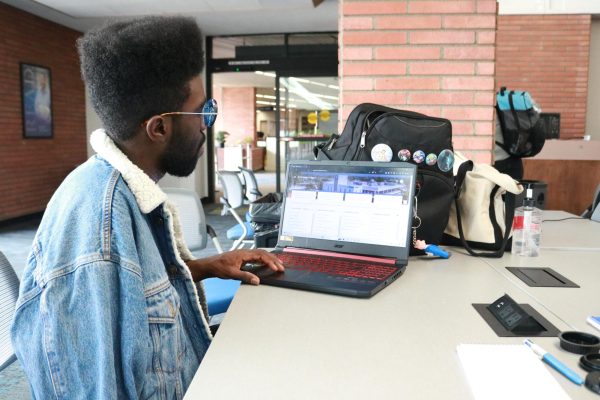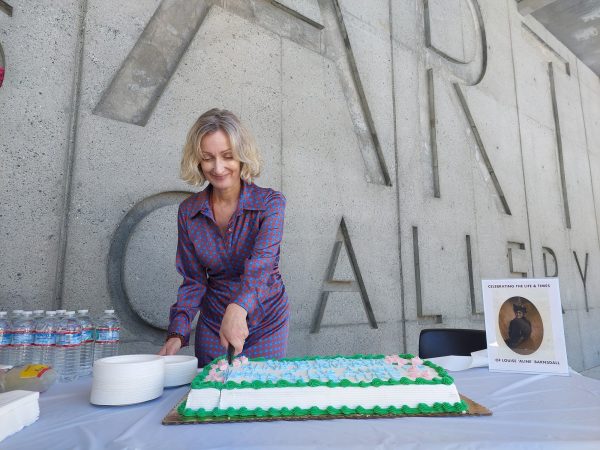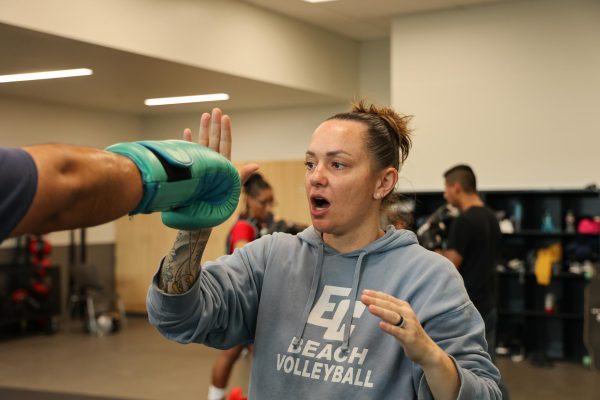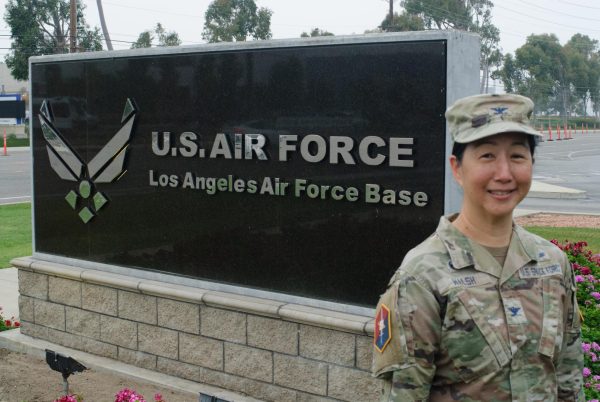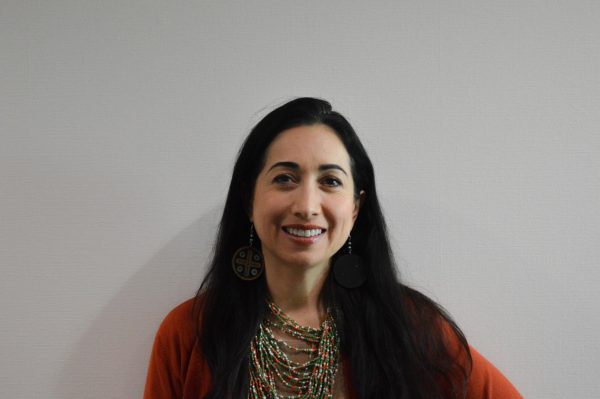Karate instructor kicks it into high gear for young students
Silence. Not a noise is heard. Suddenly, a deep voice yells, echoing throughout the room and bouncing off the walls.
“Ichi!” “Ni!” “San!”
A group of kids and young adults shout in response to the sensei’s commands, the stomp of their feet pounding on the carpeted wooden platform and the swish of their uniforms as the cloth slides and rubs against itself.
Jessica Kwong, a 20-year-old student at El Camino is at the very front of the group, directing the young kids as they position themselves in the next stance.
As the young learners finish their final moves and stances, they all conclude with their hands placed at their sides and bow respectfully to their reflections in the large wall mirror. Kwong then applauds the students and adds any additional comments on what to improve on.
A teacher and student of the Nijon Karate Dojo in Fullerton, Kwong recently attended two tournaments, the North American Cup and the U.S. Open. She concluded these tournaments with a first place award in the North American Cup and third in the U.S. Open.
The North American Cup involves competitors from Canada, Mexico, and the U.S.A. Both of the junior and senior teams of each country compete, but in their own divisions.
“I competed in the 18-20 year-old female kata and took first,” Kwong said.
The U.S. Open is a tournament for all countries, with Kwong competing in the adult female advanced division for 18-34 year-olds.
“We compete as individuals from our dojos but if receiving a medal at the finals, it is announced as ‘Jessica Kwong from the United States.’”
For the North American Cup, in order to enter, one must qualify at the National Teams trials to get onto the U.S.A team while the U.S Open is open to anyone.
As a teacher of the dojo, Kwong provides the students with assistance in making sure their feet are placed in the right position and the movement of their bodies is correctly carried out.
“Many of the kids look up to her as a model, like an older sister,” Chad Eagan, one of the owners and sensei of the dojo, said.
Growing up in a family with karate martial artists, Kwong learned and began her journey in karate at the age of 6.
“As I started to do it more, I grew a passion for it,” Kwong said.
Aside from the practice and hard work, karate also carries along with it a type of connection that Kwong defines as “budo.”
“There is a huge emotional connection in karate,” Kwong said. “Budo is the martial art way and respect of its history and respect to the different levels.”
Kwong is described by her senseis and her mother as not only self-driven, but extremely motivated with perseverance and inner as well as outer strength.
Kwong’s mother, Kristin, summarizes her daughter as “a strong kid” who works hard not only in karate but all that she does in general, including school.
Bruce Nguyen, the other owner of the dojo along with Eagan, has known Kwong her entire life, and was friends with her parents before they were married.
“It is amazing to be able to see her grow from such a little kid until now,” Nguyen said “Her family can be seen at tournaments always supporting her. She is never alone.”
Kwong’s mother, father, aunt, and uncle were all integrated in karate. Her grandfather on her mother’s side was also a martial artist. Because her family is so involved with karate, it also provides a “common ground” for Kwong as she continues her journey in martial arts.
Aside from karate, Kwong also enjoys to dance, sing, and is studying as a biology major, attending classes at both El Camino as well as extended education at Cal State Dominguez Hills.
“This is her life,” Stefan Chirila, an instructor at the dojo, said. “Like any sport, karate cannot be done if there is no heart.”
Kwong values the time that she spends practicing karate. Despite it being an art of fighting, it is more than just that to Kwong.
“It is not about the competition, but passing on what you learned,” she said. “My greatest happiness comes from helping others learn to defend themselves and improve.”


